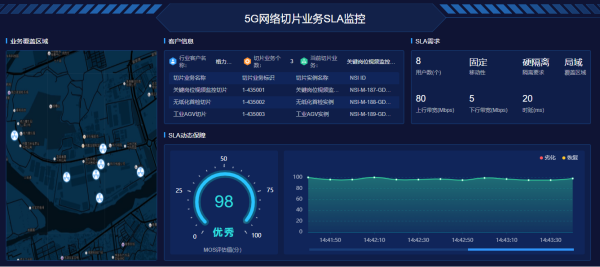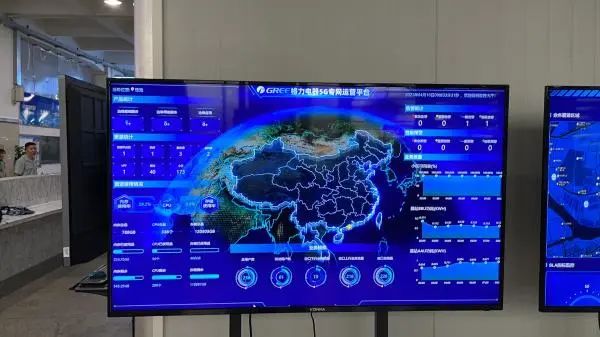Recently, China Unicom Guangdong Branch, Gree, and Huawei, reconstructed the conventional private network at Gree's HQs to a 5G hard slice–powered private network. In addition, the trio successfully tested the first 5G E2E hard slice–powered private network in China's smart manufacturing sector, marking the official application of 5G network slices in this sector.

In 2019, Gree and China Unicom won the bid for the Industrial Internet innovation and development project of Ministry of Industry and Information Technology (MIIT). In this project, China Unicom Guangdong Branch and Huawei jointly developed the "5G+MEC edge cloud+slicing" private network solution to match the 5G network requirements and smart manufacturing's service scenario plan proposed by Gree. This solution physically isolates enterprise services from public services and also isolates network resources by service scenario. As such, it ensures that enterprise data is processed within the campus, secures production data, and offers dedicated channels in service scenarios such as video content analysis, paperless First Article Inspection (FAI), and Automated Guided Vehicle (AGV) running. This effectively ensures network stability during production, cuts enterprise network maintenance costs, and improves production efficiency.
Conventional 5G private networks are upgraded through the reconstruction for 5G hard slices. Gree has specific requirements on smart production because of its complex production scenarios. To fulfill these requirements, a private network with a higher rate, higher bandwidth, lower latency, as well as enhanced security and reliability is required to ensure the security and stability of the production process. 5G hard slicing technology is underpinned by technologies such as Resource Block (RB) resource reservation, dedicated transport network channels, and exclusive User Plane Functions (UPFs) to achieve hard isolation of wireless, transport, and core network resources. 5G hard slicing helps reconstruct 5G high-speed networks to dedicated high-speed networks to ensure that networks are always available whenever there is demand. Thanks to the deployment of this technology, the latency for 5G terminals' access to Gree's intranet is reduced from 20 ms to 9 ms, ensuring the independence, security, and stability of campus services. The onsite service test demonstrates significant achievements, and the test result meets the expectations. Specifically, this technology guarantees the 60 Mbit/s deterministic uplink bandwidth for video content analysis of key positions in a production line of a Gree factory; the service bandwidth is stable at about 60 Mbit/s when the packet injection rate is 160 Mbit/s; onsite videos are clear and smooth without frame freezing.
China Unicom Guangdong Branch also provides a 5G private network and slice self-service management platform for Gree to track service usage. This platform offers intuitive 5G network optimization effects and network exception insights, providing data for Gree to make decisions and satisfying the company's digital transformation requirements.

The verification for commercial use of Gree's 5G smart manufacturing private network signifies the remarkable progress made by China Unicom Guangdong Branch, Gree, and Huawei during joint innovation for 5G vertical industries. In the future, the trio will expand production line services to be verified and promote the deployment of more smart industry capabilities with the help of the MEC cloud edge platform and 5G slicing technology. In addition, the trio are researching edge-cloud synergy with enterprises' Industrial Internet platforms, charting a broader course for 5G.

